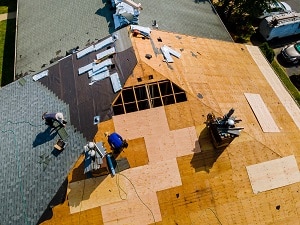
Business Advisory
Business Advisory Services
Everything you need to help you launch your new business entity from business entity selection to multiple-entity business structures.
Table Of Contents
 By Jason Watson, CPA
By Jason Watson, CPA
Posted Monday, August 5 2024
You might think this section is not too sexy since it primarily pertains to nonresidential property, but there is neat exception. We won’t discuss the mixed-use apartment building (residential) that has first-floor retail space (nonresidential); that is a can of facts and circumstance worms.
Qualified Improvement Property (QIP) is defined as any improvement made to the interior of a nonresidential building after the building is placed in service and is eligible for bonus depreciation. Improvements exclude expansion of the building, elevators and escalators (specifically called out, really?!), and changes made to a building’s internal structural framework. Oh, and let’s not forget that residential property also does not qualify.
That’s bonus depreciation and qualified improvement property. If you do not use bonus depreciation on QIP, then you must depreciate the improvement property over 15 years for tax purposes.
There is also qualified improvement property that is eligible for Section 179 (not bonus depreciation) on nonresidential property-
There is some tax arbitrage available in replacing certain property since you can accelerate depreciation with bonus depreciation, or you can leverage Section 179 expensing. How? You purchase a rental property which naturally includes an HVAC system, and as such a part of the purchase price includes the value of the HVAC system. In turn, you depreciate the building and its components including the HVAC system. Neat.
Time goes by, and you replace the HVAC system. You might be able to accelerate depreciation of the HVAC system with bonus depreciation, or immediately expense it with Section 179. However, the portion of the original building that included the HVAC system continues to depreciate. A double dip if you will. There is a thing called Partial Asset Disposition (PAD) that we will discuss in a bit where you might want to elect to dispose of the original HVAC system to recognize a tidy tax loss, and then also accelerate / expense the new HVAC system. Win win!
This nuance takes a bit of time to sort through. IRC Section 168(e)(2) reads-
(2) Residential rental or nonresidential real property
(A) Residential rental property
(i) Residential rental property
The term “residential rental property” means any building or structure if 80 percent or more of the gross rental income from such building or structure for the taxable year is rental income from dwelling units.
Ok. What is a dwelling unit? IRC Section 168(e)(2)(a)(ii)(I) reads-
(ii) Definitions. For purposes of clause (i)-
(I) the term “dwelling unit” means a house or apartment used to provide living accommodations in a building or structure, but does not include a unit in a hotel, motel, or other establishment more than one-half of the units in which are used on a transient basis
Great. What is transient basis? In Private Letter Ruling 139827-07, the IRS stated-
“Lodging facility” is defined in section 856(d)(9)(D)(ii) as a (l) hotel, (ll) motel, or (lll) other establishment more than one-half of the dwelling units in which are used on a transient basis. The term “transient” is not defined in section 856 or the regulations thereunder. However, for other purposes of the Code, a renter has generally been treated as “transient” if the rental period is less than 30 days. See section 1.48-1(h)(2)(ii) (which concerned definitions under old section 48 for purposes of the investment credit under former section 38); Shirley v. Commissioner, T.C. Memo 2004-188.
If your rental property has tenants or guests who stay 30 days or less, then they are considered transient. Subsequently, the rental property is not considered residential. Do you see how the tax code defines residential as receiving 80% of its income from dwelling units. Next, the code states that dwelling units do not include units if more than 50% of those units are used on a transient basis.
It’s defined in the negative. If you are not A, then you can only revert to B. This desire to be considered residential and to have the code respond with the criteria to be considered residential (versus wanting to be considered nonresidential) was not accidental. Huh?
Why did the IRS, Treasury, Congress and everyone define it this way? The original intent was to prevent real estate investors from using 27.5 years of depreciation versus 39.0 years. In other words, by calling a rental property a residential property, they were able to shrink the depreciation schedule (and increase current year depreciation deductions). There are all kinds of tax court cases involving nursing homes and dormitories discussing this residential versus nonresidential issue.
However, we can use this spat to our advantage. How?
Let’s go back to qualified improvement property on nonresidential properties. At the risk of repeating ourselves, there is qualified improvement property that is eligible for Section 179 (not bonus depreciation) on nonresidential property-
Transient rental. New roof or HVAC unit. Section 179 expensed in the first year. Excellent!
Sidebar: Don’t get twisted on short-term rental loophole and transient rental. Generally, short-term rentals are rentals where guests or tenants stay 30 days or less. However, for the short-term rental loophole where your rental property losses are no longer limited, the average guest stay must be 7 days or less and you must materially participate in the activity. We discuss this in detail in our section on the short-term rental (STR) loophole.